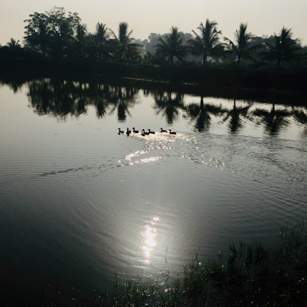
An obituary of a mother
By Trilokya Jena
Being unmothered at this moment in life I can see things a lot clearer, especially when I have become a full time orphan, my father having left five years earlier and I being in no man’s land between late life and death. Any loss is hard, but the loss of a mother runs deeper and leaves a big hole in your heart. It carries a different weight than the loss of other people in your life including that of your father. Only mothers love you unconditionally. The loss of my mother is part of my own journey, especially when my own end would be nearer than far. The irony is not lost on me as being someone addicted to long road journeys is dragged out of one geographical to that of an existential. I bear no grudge, no anger, no malice and not much angst as her end was not unexpected, bore no violence, involved no accident and held little surprise. If at all there was this amazement that she got the death she wanted, in good health, in full control, in bright sunlight and in the company of kids she so much loved.
It was almost filmy, much like Brando’s Corleone in God Father. No my mother was a divinely peaceful character, so the only other example I have for her is Max von Sydow’s character in Jan Troell’s(the fine Swedish filmmaker whom very few know as he is overpowered by the reputation of his compatriot Ingmar Bergman) The New Land.
I always believe it is the sacred duty of children to outlive their parents and in that sense I feel solaced for having accomplished my duty, no matter how badly I shall miss her. And how well I can make the transition in life divided to ‘before’ and ‘after’.
I remember an essay in our undergraduate course Tragedy and the Whole Truth by Aldous Huxley who was a far better literary critic than creative writer where he argued the superiority of the whole truth over an isolated piece of life depicted as tragedy. As Huxley says, tragedy is an arbitrarily isolated eddy on the surface of a vast river that flows on majestically, irresistibly, around, beneath, and to either side of it. In order to make a tragedy the artist must isolate a single element out of the totality of human experience. On the other hand the whole truth deals with the entirety of human life. Huxley illustrates his point by referring to the Scylla episode in Homer’s Odessey where some of Odysseus heroic companions get devoured by the sea monster before his own eyes but Odysseus grieves them only after making his escape, settling the survivors and serving them meals as, according to Homer, the most cruelly bereaved must eat, that hunger is greater than sorrow and its satisfaction takes precedence over tears.
I am no Homer or Odysseus and I have deep suspicion of English emotion(sorry Shakespeare). Although I’ve remembered Huxley’s essay since I read it and have taken courage from it at times, you lose your mother only once. We all grieve in different ways and it is not always about sitting in a dark room with your knees huddled to your chest, rocking back and forth in a slow cry. Grieving can strike when you’re in the middle of brushing your teeth, watching a riveting game on tv, or driving on the highway. I sat on the bed my mother used and got her smell, I held her walking stick and got her touch. It’s different when you you are young and raw. At a time when you are not that far off your responsibilities towards your children, you have to prepare them to bear their own loss gracefully sometime in the future. Small consolations that against the howling wind of sadness that blow within myself. I know it is subsiding somewhat but it would never go away altogether.
Over time the howling would diminish to a roar, then to a whisper and ultimately to a sigh. I’ll go about my life again though it will always be the ‘after’ period, different and sadder.
For years we have a flock of ducks in my village that keep roaming from one pond to another around our house. My mother would walk to the ponds several times a day with bowls of rice and they would know her foot steps, later the sound of her walking stick knocking the ground, and they would rush to her piling over each other. My mother would throw the rice at them which they would pick up scrambling over one another gleefully. The morning after her passing away I walked upto the pond with a bowl of rice and called them out. Only a few came up and nibbled at the rice I threw at them. The rest kept on swimming blissfully moving farther and farther into the pond completely ignoring my call and the trace of tragedy in it. That’s their perception of the whole truth. Life goes on for them, and would for us in our respective ways.






